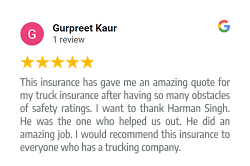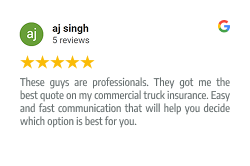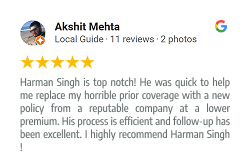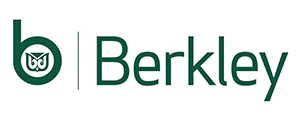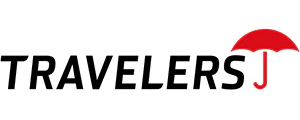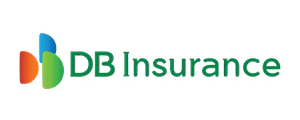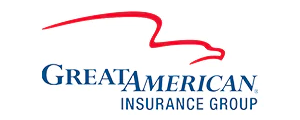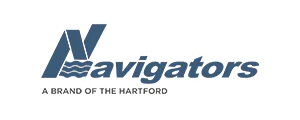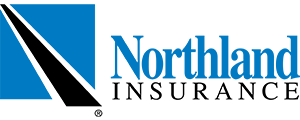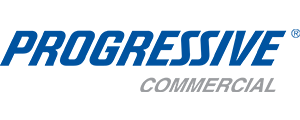
Commercial Truck Insurance Guide 2026: Costs, Requirements & Quotes for Truckers
Commercial truck insurance is a critical investment for any trucking business, protecting operators from potentially devastating financial losses while ensuring regulatory compliance across all 50 states. Whether operating as an independent owner-operator truck insurance policyholder or managing a fleet of hundreds, understanding commercial truck insurance requirements and costs is essential for sustainable business operations.
Understanding Commercial Truck Insurance
Commercial truck insurance represents a specialized form of business auto coverage designed specifically for trucks and large vehicles used for commercial purposes. This insurance differs significantly from personal auto coverage, offering higher liability limits and specialized protections tailored to the unique risks faced by commercial trucking operations.
Insurance for commercial trucking encompasses multiple policy types that work together to protect various aspects of trucking operations. These policies cover property damage to the truck itself, liability for injuries or damage caused to others, protection for transported cargo, and coverage for business operations beyond just vehicle-related incidents.
The Federal Motor Carrier Safety Administration (FMCSA) mandates specific minimum coverage requirements for commercial trucks operating in interstate commerce, with liability minimums ranging from $750,000 to $5 million depending on the type of cargo transported. State regulations may impose additional requirements for intrastate operations.
Types of Commercial Truck Insurance Coverage
Before diving into the details, it’s important to understand that commercial truck insurance is not just one policy but a collection of different coverages. Each type of insurance protects a specific aspect of trucking operations—from liability and vehicle damage to cargo protection and non-business use. Together, these policies create a safety net tailored to the unique risks faced by truck drivers and fleet owners.
Primary Liability Insurance
Primary liability insurance serves as the foundation of any commercial truck insurance policy, covering bodily injury and property damage to third parties when the truck operator is at fault in an accident. This coverage is legally mandatory in most states and forms the basis for meeting FMCSA filing requirements.
Annual premiums for primary liability coverage typically range from $4,000 to $12,000, though costs vary significantly based on operating radius, cargo type, and driver experience. High-risk operations or those transporting hazardous materials face substantially higher premiums.
Physical Damage Protection
Physical damage insurance protects the truck and trailer from collision damage, theft, vandalism, fire, and natural disasters. This coverage includes both collision and comprehensive components, with collision covering accident-related damage and comprehensive protecting against non-collision perils.
Premium costs for physical damage coverage range from $1,500 to $5,000 annually, depending on vehicle value, age, and chosen deductible levels. Newer trucks with advanced safety features often qualify for lower rates.
Motor Truck Cargo Insurance
Cargo insurance protects the goods being transported against theft, damage, or loss during transit. Many truckers choose dedicated motor truck cargo insurance to safeguard their shipments. The FMCSA requires minimum cargo coverage of $5,000 per vehicle and $10,000 per incident for most commercial operations.
Annual cargo insurance premiums typically range from $350 to $1,800, with costs varying based on cargo value, type, and theft risk. High-value electronics or pharmaceuticals command higher premiums than standard freight.
Non-Trucking Liability Coverage
Non-trucking liability, also known as bobtail insurance, provides coverage when the truck is operated without a trailer or outside of dispatch duties. This coverage fills gaps when primary liability policies may not apply, protecting operators during personal use or deadhead situations.
Commercial Truck Insurance Requirements by State
Federal regulations establish baseline requirements for interstate commercial trucking operations, but individual states may impose additional mandates for intrastate transport. Most states require proof of financial responsibility through insurance certificates or bonds before issuing operating permits.
Commercial truck insurance requirements typically include minimum liability coverage that varies by gross vehicle weight and cargo type. Trucks carrying hazardous materials face the highest minimum requirements, often requiring $5 million in liability coverage.
Interstate operators must file Form MCS-90 with the Federal Motor Carrier Safety Administration (FMCSA), demonstrating adequate insurance coverage. This federal filing requirement applies regardless of home state regulations and ensures uniform minimum protection levels across state lines.
Commercial Truck Insurance Cost in 2026
On average, commercial truck insurance costs between $9,000 and $15,000 per year for a single truck in the U.S. Actual costs vary depending on your coverage needs, operating radius, and driving history.
Here’s a breakdown of typical annual premiums by coverage type:
- Primary Liability Insurance: $4,000 – $12,000
- Physical Damage Coverage: $1,500 – $5,000
- Motor Truck Cargo Insurance: $350 – $1,800
- General Liability Insurance: $250 – $750
- Non-Trucking Liability (Bobtail Insurance): $2,000 – $5,000
- Umbrella Coverage: $500 – $1,500
For fleet owners, costs scale up based on the number of trucks, driver experience, and cargo types. For owner-operators, expect higher premiums during the first few years until you build a strong safety and compliance record.
Factors Affecting Commercial Truck Insurance Cost
Insurance premiums aren’t one-size-fits-all. The amount you pay for coverage depends on a wide range of factors that insurers evaluate to determine your risk level. From the experience of your drivers to the type of cargo you haul, these elements can raise or lower your annual premium. Understanding these cost drivers helps you anticipate expenses and manage your insurance budget more effectively.
Driver Experience and Safety Record
Insurance companies heavily weight driver experience and safety records when calculating premiums. Drivers with less than two years of commercial experience typically face higher rates, while those with clean records spanning multiple years benefit from reduced premiums.
Accidents, speeding violations, and DOT inspection violations can significantly increase insurance costs. Some carriers may refuse coverage entirely for operators with multiple violations or serious infractions.
Cargo Type and Operating Radius
The type of goods transported directly impacts insurance costs, with high-value or theft-prone cargo commanding higher premiums. Electronics, pharmaceuticals, and luxury goods face substantially higher rates than basic commodities.
Operating radius also affects costs, with unlimited radius operations facing higher premiums due to increased exposure. Local and regional operations typically qualify for lower rates than long-haul interstate transport.
Vehicle Specifications and Safety Features
Truck age, condition, and safety equipment significantly influence insurance costs. Newer vehicles equipped with electronic logging devices (ELDs), dash cameras, and collision avoidance systems often qualify for substantial discounts. According to the National Highway Traffic Safety Administration (NHTSA), adopting advanced truck safety technology not only reduces accident risks but also demonstrates a strong commitment to compliance—factors that insurers reward with lower premiums.
Well-maintained fleets with documented preventive maintenance programs demonstrate lower risk profiles to insurers. Regular DOT inspections with minimal violations help establish favorable safety records.
How to Get Commercial Truck Insurance Quotes Online
Shopping for truck insurance has become much easier thanks to online platforms. Today, truckers and fleet managers can request quotes, compare coverage options, and connect with specialized agents—all without leaving their office. However, to get the most accurate and competitive quotes, you’ll need to be prepared with certain information about your business and vehicles.
Preparing for Quote Requests
Obtaining accurate commercial trucking insurance quotes requires comprehensive business information. Essential documentation includes DOT and MC numbers, current insurance certificates, detailed operation descriptions, and driver information including license numbers and violation history.
Vehicle identification numbers (VINs) for all trucks and trailers, along with year, make, model, and estimated values, are necessary for comprehensive quotes. Loss runs from previous insurance terms help carriers assess risk accurately.
Comparing Quote Options
When shopping for insurance for commercial vehicles, obtaining quotes from multiple carriers ensures competitive pricing and coverage options. Focus on carriers specializing in trucking insurance rather than general commercial auto providers.
Compare not only premium costs but also coverage limits, deductibles, and policy exclusions. The cheapest option may not provide adequate protection for specific business operations.
Working with Specialized Agents
Insurance brokers specializing in trucking insurance understand industry-specific risks and regulatory requirements. These professionals can identify coverage gaps and recommend appropriate limits for specific operations.
Specialized agents maintain relationships with multiple carriers, enabling them to find coverage for high-risk operations that general agents might struggle to place.
Strategies to Reduce Commercial Truck Insurance Costs
While insurance is a major business expense, there are proven strategies to help reduce premiums without sacrificing coverage. By focusing on safety, compliance, and smart financial decisions, trucking businesses can cut costs and make their policies more affordable. The following practices are some of the most effective ways to keep your insurance expenses under control.
Implementing Safety Technology
Installing electronic logging devices (ELDs) and dash cameras can significantly reduce insurance premiums. These technologies provide objective evidence in accident investigations and demonstrate commitment to safety compliance.
Telematics systems that monitor driver behavior, including harsh braking, rapid acceleration, and speeding, help insurers assess risk more accurately. Fleets demonstrating consistently safe driving patterns often qualify for usage-based insurance discounts.
Maintaining Clean Safety Records
Developing comprehensive driver safety programs reduces accidents and violations, leading to lower insurance costs over time. Regular driver training, safety meetings, and performance monitoring demonstrate proactive risk management.
Maintaining favorable SAFER scores through consistent DOT compliance helps establish credibility with insurance carriers. Clean inspection records and prompt violation corrections show commitment to regulatory compliance.
Optimizing Deductibles and Payment Terms
Choosing higher deductibles can substantially reduce premium costs, though operators must ensure they can afford the increased out-of-pocket expense during claims. Typical deductibles range from $1,000 to $25,000 depending on fleet size and risk tolerance.
Paying annual premiums in full rather than monthly installments can save up to 15% on total costs. Many carriers offer additional discounts for automatic payment enrollment or multi-year policy commitments.
Avoiding Common Commercial Truck Insurance Pitfalls
Many truckers make costly mistakes when purchasing or managing their insurance policies. These pitfalls often lead to coverage gaps, denied claims, or higher long-term expenses. By being aware of these common issues ahead of time, you can avoid unnecessary risks and ensure your trucking business stays protected under the right insurance plan.
Understanding Policy Exclusions
Commercial truck insurance policies contain numerous exclusions that can leave operators vulnerable during claims. Common exclusions include wear and tear, mechanical breakdowns, and coverage gaps during specific operational scenarios.
Cargo insurance typically excludes goods stored in warehouses for extended periods, certain high-risk commodities, and damage from improper loading or securing. Understanding these limitations helps prevent coverage surprises during claims.
Preventing Coverage Misclassification
Unethical agents may misclassify business operations or cargo types to reduce premiums artificially. This practice can result in denied claims and policy cancellation when insurance companies discover the misrepresentation.
Always provide accurate, complete information about business operations, cargo types, and operating territories. Misrepresentation can void coverage entirely, leaving operators personally liable for damages.
Maintaining Adequate Coverage Limits
Choosing minimum required coverage limits may seem cost-effective but can prove inadequate during major claims. Severe accidents involving multiple vehicles or fatalities can result in damages exceeding basic liability limits.
Umbrella policies provide additional liability protection beyond primary limits, offering cost-effective protection against catastrophic claims. These policies typically cost $500 to $1,500 annually for substantial additional coverage.
Conclusion
By investing in the right coverage and working with specialized agents, truckers can stay compliant, reduce risks, and protect their livelihood. If you’re ready to compare commercial trucking insurance quotes, start today and secure your business on the road.
Frequently Asked Questions
What is the minimum commercial truck insurance required by law?
Federal regulations require minimum liability coverage ranging from $750,000 to $5 million depending on cargo type, with interstate carriers requiring FMCSA filings. State requirements may differ for intrastate operations, making it essential to verify specific requirements for your operating territory.
How much does commercial truck insurance typically cost?
Annual premiums vary widely based on coverage types and risk factors, with primary liability costing $4,000-$12,000, physical damage $1,500-$5,000, and cargo coverage $350-$1,800. Total annual costs typically range from $3,552 in low-cost states like Mississippi to over $20,000 in high-cost states like New Jersey.
What information do I need to get a commercial truck insurance quote?
Insurers require DOT and MC numbers, current insurance certificates, detailed operation descriptions, driver information including licenses and violation history, vehicle VINs with specifications, loss runs from previous coverage, and IFTA reports showing mileage by state.
Can I get commercial truck insurance online?
Yes, many carriers offer online quotes and policy purchases for commercial truck insurance. However, complex operations or specialized cargo may require direct agent consultation to ensure proper coverage selection.
What’s the difference between commercial truck insurance and regular auto insurance?
Commercial truck insurance provides higher liability limits, specialized coverage for business operations, cargo protection, and compliance with federal regulations. Regular auto insurance typically excludes commercial use and provides insufficient coverage for trucking operations.
How can I lower my commercial truck insurance costs?
Implement safety technology like ELDs and dash cameras, maintain clean driving records and DOT compliance, choose higher deductibles, pay premiums annually, and work with specialized trucking insurance agents. Building a strong safety culture and maintaining well-documented maintenance programs also help reduce costs.
Commercial truck insurance represents a complex but essential component of successful trucking operations. Understanding coverage requirements, cost factors, and optimization strategies helps operators make informed decisions that protect their businesses while managing expenses effectively. Working with knowledgeable insurance professionals who understand trucking industry challenges ensures appropriate coverage selection and competitive pricing for long-term business success.


